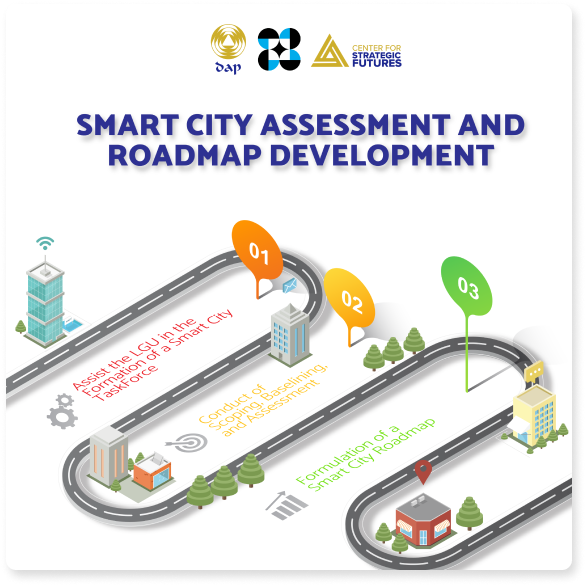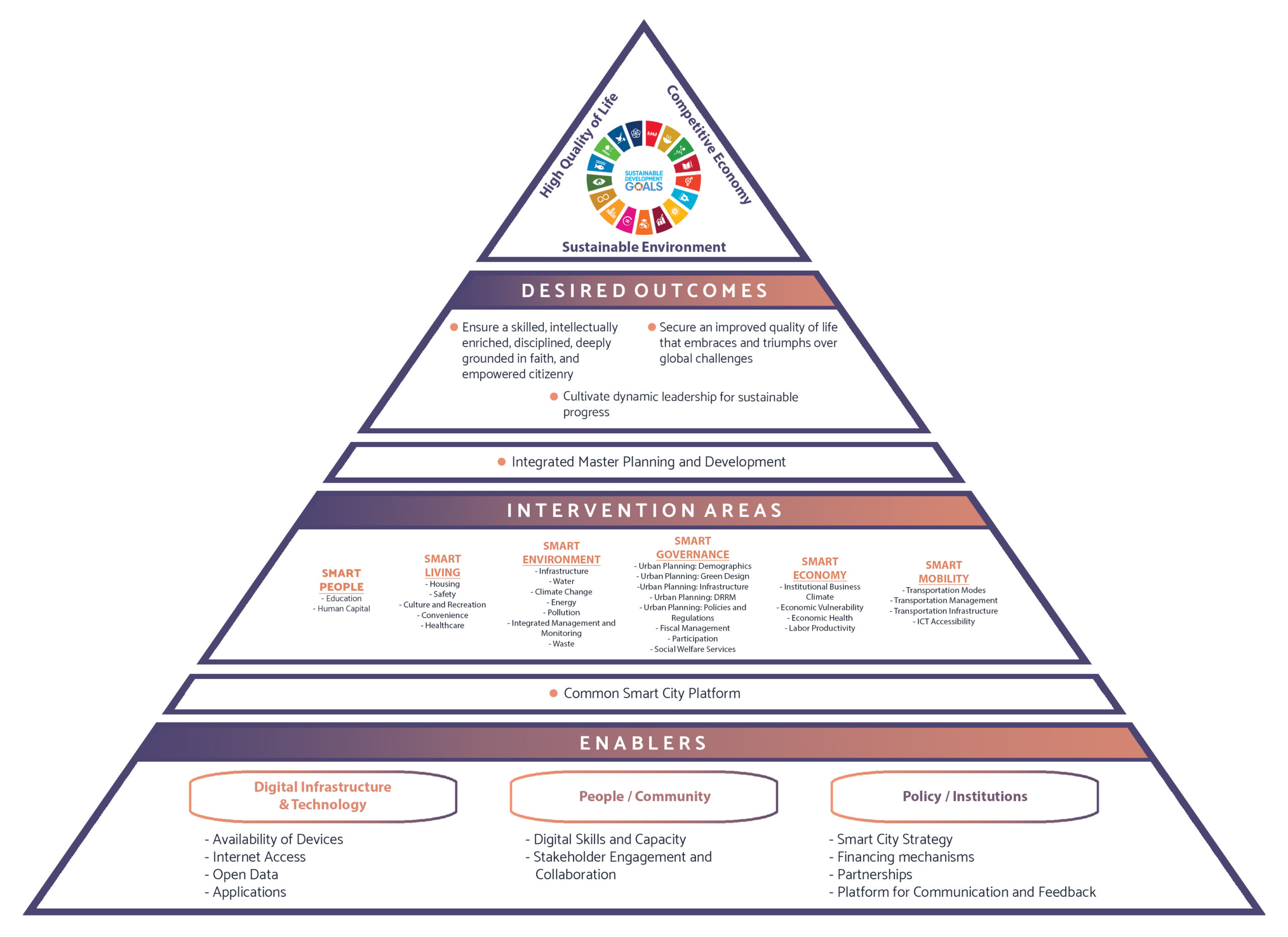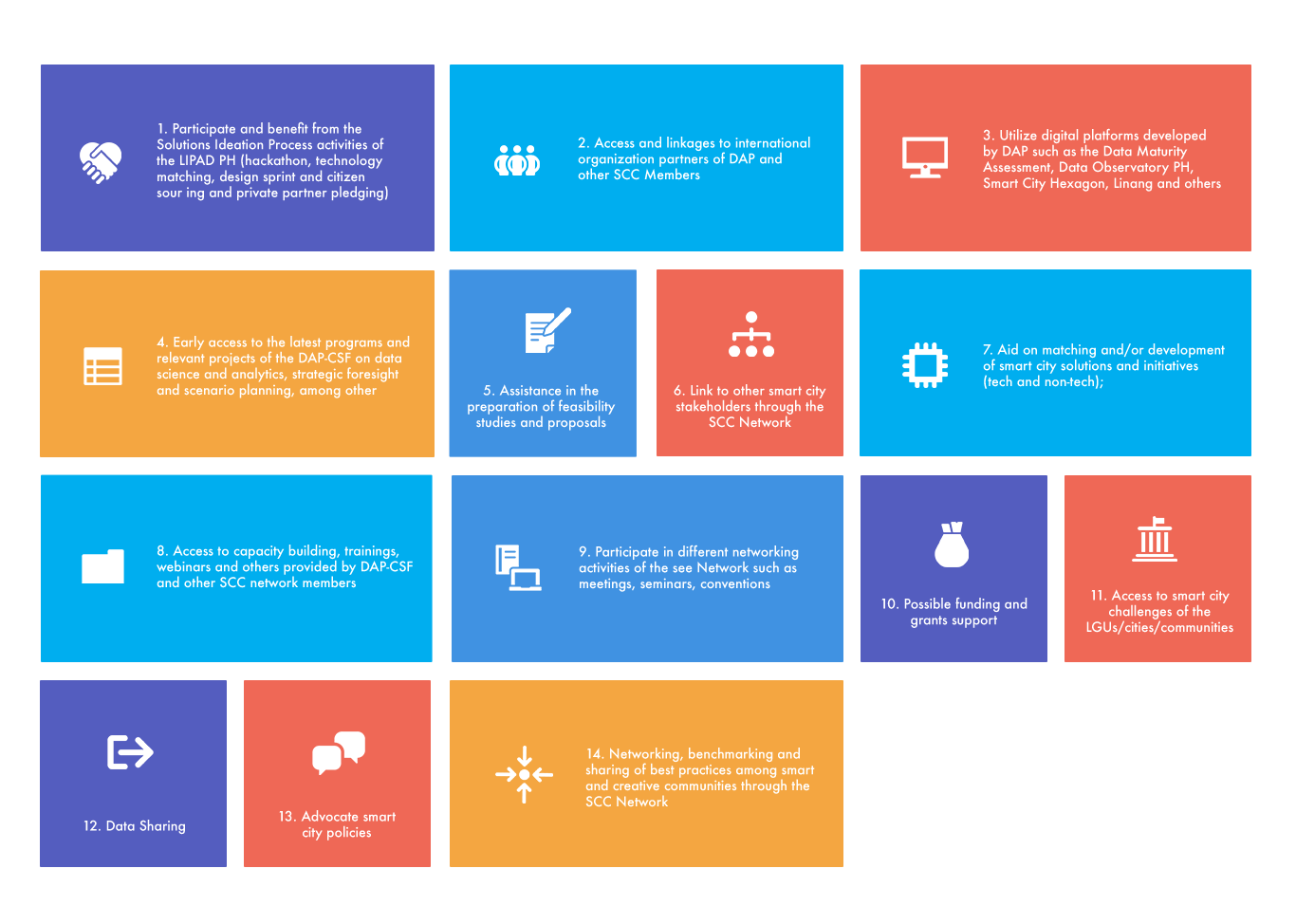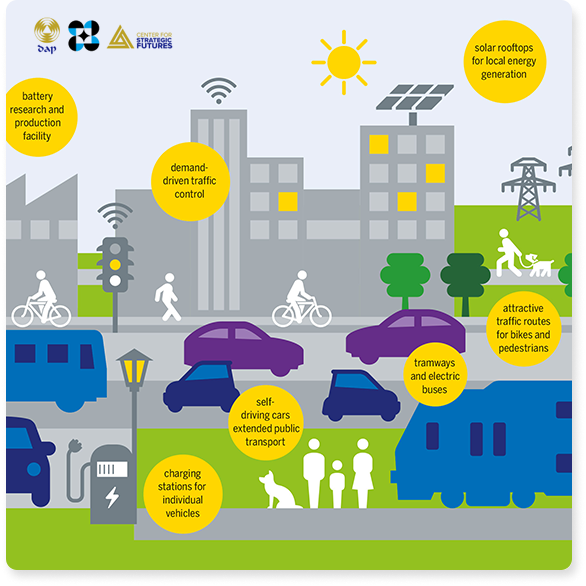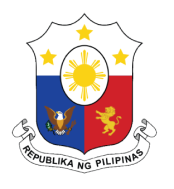This project component seeks to develop or acquire, and implement the latest and relevant smart city strategies, tools and technologies to primarily capacitate the CSF in its delivery of the Smart City Assessment and Roadmap development, as well as to enhance the overall smartness and creativity of communities. The project will involve collaboration among the public sector, both on the local and national level, and the private sector to identify and address the specific needs of the community.
The CSF holds a comprehensive repository of an extensive array of smart city tools and technologies, specifically curated for smart city development initiatives. This vast compendium encompasses an assortment of solutions, ranging from DOST-funded and developed innovations, emerging from various programs and projects, to cutting-edge tech products conceived from the Start Hackathon and Incubation Program of the SCC Network. Additionally, it houses a collection of tech solutions from partner technology providers readily available in the market.
To further facilitate seamless access and utilization of these technologies, the CSF is diligently crafting a dynamic Smart Technology Portal. This portal is precisely designed to be an interactive hub, providing local governments and other potential users with an avenue for exploration and acquisition of smart city solutions. The Smart Technology Portal will not only showcase a diverse array of innovative solutions, but will also assist users in navigating and identifying the most suitable technologies that align with their specific requirements.

